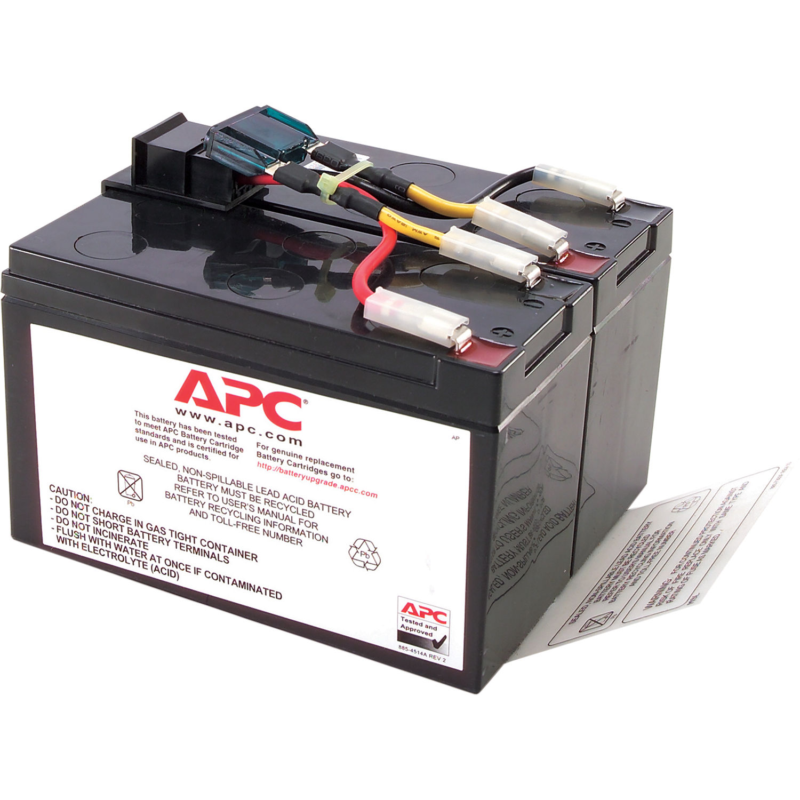UPS
APC UPS Batteries Explained: Types, Maintenance, and Replacement
Introduction
APC (American Power Conversion) is a globally recognized brand specializing in uninterruptible power supply (UPS) systems. One of the critical components of an APC UPS system is its battery, which provides backup power during outages and ensures the smooth operation of connected devices.
This guide explores everything you need to know about APC UPS batteries, including types, maintenance, replacement, and best practices for longevity.
Types of APC UPS Batteries
UPS systems safeguard your business against shutting down unexpectedly. But the systems are only as reliable as the UPS batteries that support them. Batteries may be the simplest component in a UPS system, but they are arguably the most important.
APC UPS systems primarily use sealed lead-acid (SLA) batteries, known for their reliability and cost-effectiveness. However, newer lithium-ion battery models are emerging due to their enhanced performance and longer lifespan.
1. Sealed Lead-Acid (SLA) Batteries
Most commonly used in APC UPS systems.
Offer large amount of storage at lower cost.
Require minimal maintenance.
Typically, heavier and last upto 3-5 years.
Provide stable and reliable power backup.
2. Lithium-Ion Batteries
Offer longer lifespan (up to 10 years).
Lighter and more efficient than SLA batteries.
Are smaller, lighter and provide faster recharge times.
Can operate at higher temperatures and require less cooling
Higher upfront cost but lower total cost of ownership.

Choosing the Right APC UPS Battery
When selecting a battery for your APC UPS, consider the following factors:
Compatibility
Ensure the battery matches your APC UPS model. APC provides specific battery replacement codes (e.g., RBC123) that indicate compatibility with different models.
Battery Capacity (VA & AH Rating)
Volt-Ampere (VA) rating determines the UPS capacity.
Ampere-Hour (AH) rating defines how long the battery can supply power.
Higher AH means longer backup time but also larger size and weight.
Expected Lifespan
Lithium-ion batteries last longer than SLA batteries, making them ideal for mission-critical applications.
Environmental Conditions
Operating temperature impacts battery longevity.
SLA batteries should be stored in a cool, dry place (20-25°C or 68-77°F is optimal).
Lithium-ion batteries perform better in varying temperatures.
APC UPS Battery Maintenance
Proper maintenance can extend battery life and ensure reliable performance.
Regular Testing
Perform periodic self-tests to check battery health.
APC UPS models often include a battery test feature that detects weak or failing batteries.
Proper Ventilation
Avoid placing UPS units in confined spaces.
Proper airflow prevents overheating and improves efficiency.
Avoid Deep Discharges
Frequent deep discharges reduce battery lifespan.
Use UPS management software to monitor battery status and avoid over-discharge.
Keep Connections Secure
Ensure battery terminals are tight and free from corrosion.
Regularly inspect battery connections and clean them if necessary.
Replacing a UPS Battery
When a UPS battery reaches the end of its life, replacement is necessary to maintain backup power reliability. Follow these steps:
Identify the Right Replacement Battery
Check your UPS model and refer to APC’s Replacement Battery Cartridge (RBC) listings.
Power Down the UPS
Safely shut down connected devices before removing the old battery.
Replace the Battery
Open the UPS battery compartment.
Disconnect and remove the old battery.
Insert the new battery and secure all connections.
Recharge and Test
Charge the new battery for at least 8-12 hours before use.
Perform a self-test to ensure proper functionality.
Best Practices for Extending APC UPS Battery Life
Keep batteries in a stable temperature environment.
Avoid overloading the UPS. Excessive load drains batteries faster.
Regularly cycle the battery. Occasional discharges and recharges maintain battery efficiency.
Use genuine APC replacement batteries. Third-party batteries may not perform optimally.
Conclusion
APC UPS batteries are essential for providing backup power and ensuring uninterrupted operation of critical devices. Understanding the different types, maintenance requirements, and best practices can help you maximize battery lifespan and performance.
Since battery replacement is a major investment, it is recommended to work with a UPS battery expert to ensure the work is done correctly and safely. Reach out to the team to advise on the battery you will need for your UPS and service charges as well.
